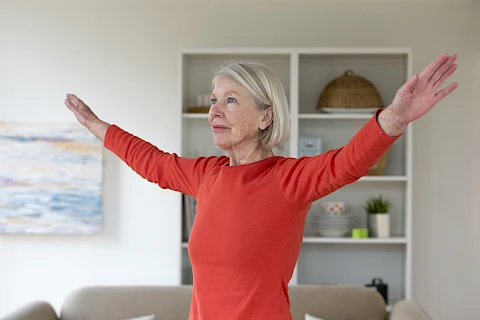
The shorter days and cooler months may leave many seniors feeling down. While this could be the blues, it could also be seasonal depression. Seasonal mood changes can greatly impact seniors and affect their enjoyment of life and daily activities. Addressing these mood changes is important to ensure good health and happiness. Senior Helpers offers a guide to help seniors cope with seasonal depression and manage its effects.
What Is Seasonal Depression?
Seasonal depression, also known as Seasonal Affective Disorder (SAD), is a type of depression that comes and goes with the seasons. Symptoms can include low energy, difficulty concentrating, changes in sleeping patterns, and loss of interest in activities seniors usually enjoy. A significant factor is the lack of sunlight during the fall and winter months. It can affect the body's internal clock and serotonin levels, contributing to mood changes.
Coping Strategies for Seniors
Finding effective ways to cope with seasonal depression can make a big difference. Here are some strategies that may help:
- Routine and Structure — Establishing a daily routine provides stability and predictability. It can be comforting and help combat feelings of uncertainty.
- Physical Activity — Regular exercise is a great mood booster. Simple activities like walking or stretching can increase serotonin levels and improve mood. Always consult with healthcare providers before starting any new exercise regimen.
- Light Therapy — Special light boxes mimic sunlight and can help regulate mood. Using one for about 20 minutes each morning can be incredibly beneficial.
- Social Connections — Staying connected with family and friends is one of the best ways to beat SAD. Regular phone calls, video chats, or socially distant visits can help combat loneliness and isolation.
Lifestyle Adjustments for Emotional Well-Being
Small, manageable lifestyle changes can also support emotional well-being. Here are a few to consider:
- Eat Balanced Meals — Nutrition plays a crucial role in mood stabilization. A healthy diet of fruits, vegetables, and omega-3 fatty acids can boost overall mood.
- Stay Active—Seniors should engage in activities that bring joy and help keep their spirits lifted. These could include painting, crafting, gardening, or reading.
- Practice Mindfulness — Relaxation techniques like meditation, deep breathing, or gentle yoga can reduce stress and improve mood. Mindfulness allows you to live in the moment and avoid negative thinking.
- Create a Bedtime Routine—Establishing a bedtime routine can help improve sleep quality and boost energy levels. A good night's sleep is vital for mental health.
When to Seek Professional Help
Sometimes, seasonal depression requires more than self-care strategies, and it is wise to know when to seek professional help. Talking to a counselor or psychologist can be beneficial if symptoms are overwhelming or persist. These professionals can offer guidance and treatment options, like talk therapy or medication. Seniors can take advantage of local resources, including support groups and mental health services, that specialize in treating seasonal depression. Reaching out for help is a sign of strength and a step toward feeling better.
Senior Helpers Can Help Manage Seasonal Depression
Senior Helpers offers comprehensive, in-home senior care services designed to address the specific needs of our community's seniors. If you live in Cheyenne, Laramie, or the surrounding areas, don't hesitate to contact us today at Senior Helpers Cheyenne. We are here to help you or your loved ones navigate these seasonal challenges with care and compassion.